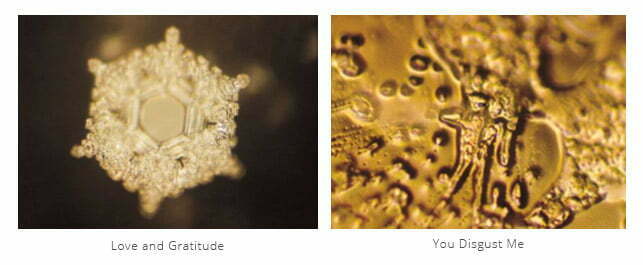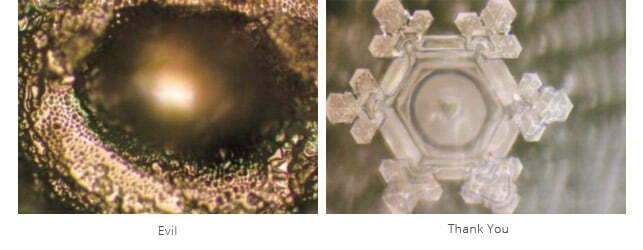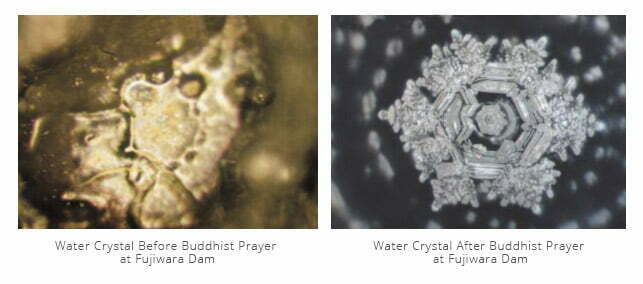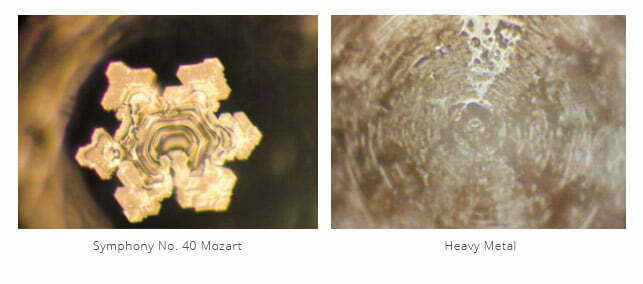What is Water Consciousness?
7🔥 points you must know
How Your Thoughts and Words Affect Water
Water, the life-giving essence of our planet, has long been revered for its transformative properties. Beyond its physical attributes, emerging research suggests that water possesses a unique consciousness that can be influenced by human emotions, thoughts, and words.
This concept, known as Water Consciousness, has captivated the interest of scientists, spiritual practitioners, and individuals seeking a deeper understanding of the interplay between our inner states and the world around us.
In this blog, we will delve into the origins of Water Consciousness, the pioneering work of Masaru Emoto, the effects of emotions and words on water, the potential healing abilities of water, and how embracing Water Consciousness can positively impact our lives.
What is Water Consciousness?
Water Consciousness refers to the idea that water is more than just a physical substance that we use for drinking, cleaning, and bathing and that it possesses a subtle form of consciousness that can interact and respond to various stimuli, including human emotions, thoughts, and vibrations.
It is the concept that water is a living entity that can be affected by our thoughts, words, and emotions. It suggests that water has the ability to retain and transmit energetic imprints, making it sensitive to the environment and the individuals it comes into contact with.
What was the origins of Water Consciousness?
The concept of Water Consciousness traces its origins to ancient cultures that recognized the spiritual and transformative qualities of water. Indigenous traditions, such as those found in Native American and Eastern philosophies, have long held deep reverence for water and its connection to the spiritual realm.
In India, the practice of Ayurveda sees water as a life-giving force that is deeply connected to our health and wellbeing. In China, the practice of Feng Shui considers the flow of water in a space to be an essential aspect of creating harmony and balance.
However, the modern exploration of Water Consciousness gained significant attention with the groundbreaking research conducted by Japanese scientist Masaru Emoto in the late 20th century.
Who was Masaru Emoto?
Masaru Emoto was a Japanese author, researcher, and entrepreneur known for his extensive study of water and its response to human consciousness. He believed that water could hold a memory of the energy and information that it comes into contact with. Emoto conducted several experiments where he exposed water to various words, emotions, music, and vibrations, and then froze the water and photographed and examined the resulting crystal formations.
How does water respond to your emotions?
Emoto’s experiments revealed that water exposed to positive emotions, such as love, gratitude, and joy, formed beautiful and symmetrical crystal patterns. Conversely, water exposed to negative emotions, such as hatred, anger, and fear, displayed distorted and disorganized structures. These findings suggest that water is responsive to the energetic frequencies emitted by our emotions, thereby influencing its molecular structure.
What are the effects of words on water?

Emoto’s research also demonstrated that words spoken while holding the water could affect its crystalline structure. Positive words like “love” and “gratitude” produced harmonious and well-formed crystals, while negative words resulted in fragmented and irregular patterns. This suggests that the vibrational qualities of words can influence water’s response and potentially impact its energetic properties.
Can we heal our body by instructing water?
Proponents of Water Consciousness believe that by consciously directing positive intentions and affirmations towards water, we can potentially influence our own well-being. The idea is that when we consume or come into contact with water that has been imbued with positive intentions, it may facilitate healing on physical, emotional, and spiritual levels. However, it is important to note that further scientific research is needed to fully understand and validate these claims. Click to read more about other forms of healings, such as Sound Healing and Pranic Healing.

How Can Water Consciousness Affect You?
Knowing that 60 to 65% of the human body is made of water and by recognizing the potential impact of our thoughts, emotions and words on water, we can cultivate a deeper relationship with this vital resource.
Engaging in practices such as blessing or infusing water with positive intentions can create a ripple effect, positively influencing our own well-being and the environment around us. It encourages us to become more conscious, mindful and aware of our choices, both in how we interact with water and how we relate to ourselves and others.


FAQs:
Can thoughts change water?
According to the research conducted by Masaru Emoto, thoughts have the potential to influence water’s molecular structure. Positive thoughts and intentions can result in well-formed crystals, while negative thoughts may lead to distorted patterns.
Does music affect water?
Emoto’s experiments also suggested that music can affect water. Harmonious and classical music produced more coherent and symmetrical crystal formations than heavy metal and discordant music.
Does water have spiritual powers?
Water has long been associated with spiritual and transformative qualities in various cultures. It is seen as a conduit for cleansing, purification, and renewal. While the concept of water possessing spiritual powers is subjective and deeply rooted in personal beliefs, many individuals find solace, inspiration, and a sense of connection through their interactions with water.
What is holy water?
Holy water is water that has been blessed or consecrated by a religious figure or ritual. It is often used in religious ceremonies, such as baptisms and blessings, and is believed to possess sacred or purifying qualities.
Does water have healing abilities?
While water does not have inherent healing abilities, proponents of Water Consciousness believe that water can play a role in promoting healing on physical, emotional, and spiritual levels. However, it is important to approach this notion with an open mind and to seek a balanced perspective supported by scientific research.
Does water respond to your emotions?
Emoto’s experiments suggested that water can respond to human emotions, with positive emotions producing coherent and beautiful crystal formations, and negative emotions resulting in distorted patterns. This implies that water can be influenced by the energetic frequencies emitted by our emotional states.
Does water have emotions?
The concept of water having emotions is a subject of debate. While Water Consciousness suggests that water possesses a subtle form of consciousness that can interact and respond to stimuli, whether it experiences emotions akin to human beings or can hold memory of the energy is still a matter of speculation and further exploration.
Water consciousness is a fascinating concept that reminds us to be mindful of the impact that our thoughts and words can have on the world around us. By adopting a respectful and mindful attitude towards water, we can promote a healthier relationship with this vital resource. We can also use our thoughts, words, and emotions to promote healing and balance in our life.
As we continue to face the challenges of water scarcity and climate change, the concept of water consciousness reminds us that we are all connected to this precious resource and that we all have a role to play in its preservation.
